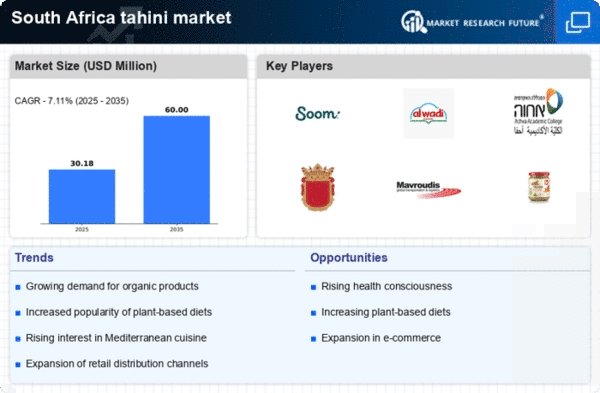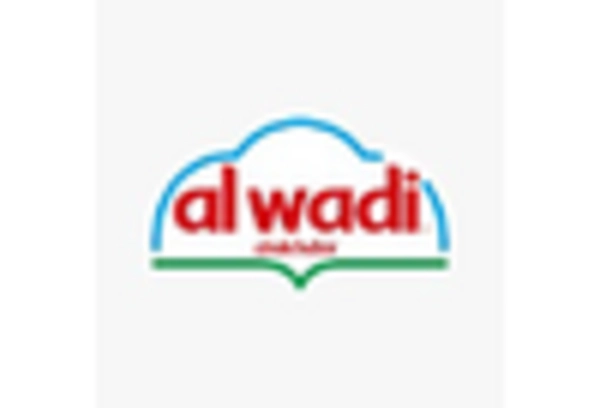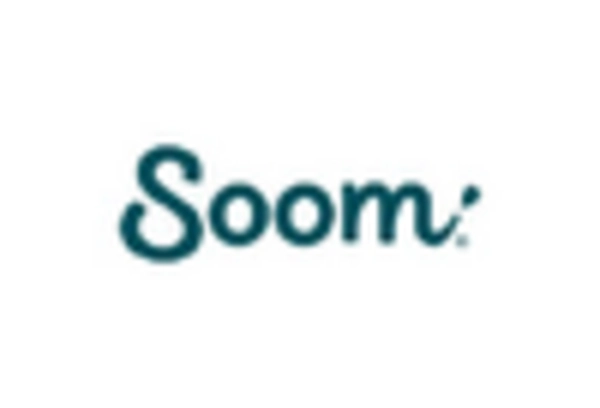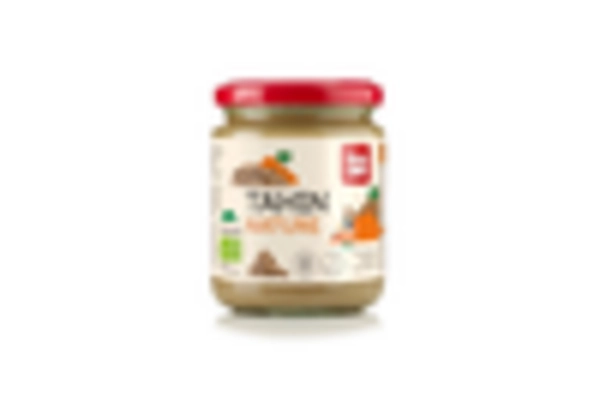Growing Interest in Ethnic Cuisine
The tahini market is benefiting from the growing interest in ethnic cuisine among South African consumers. As culinary exploration becomes more prevalent, tahini, a staple in Middle Eastern and Mediterranean dishes, gains popularity. This interest is reflected in the increasing number of restaurants and food outlets offering tahini-based dishes. Market analysis indicates that ethnic food sales have risen by approximately 12% in the past year, suggesting a favorable environment for tahini products. This trend may lead to greater acceptance and demand for tahini, further solidifying its position in the South African food landscape.
Rising Demand for Plant-Based Products
The tahini market in South Africa experiences a notable increase in demand for plant-based products. This trend aligns with the growing consumer preference for healthier, sustainable food options. As more individuals adopt vegetarian and vegan diets, tahini, being a rich source of plant-based protein and healthy fats, becomes increasingly popular. Market data indicates that the plant-based food sector is projected to grow at a CAGR of approximately 10% over the next five years. This shift in dietary habits is likely to drive the tahini market, as consumers seek alternatives to traditional animal-based products.
Expansion of Retail Distribution Channels
The tahini market in South Africa is witnessing an expansion of retail distribution channels, which plays a crucial role in increasing product accessibility. Supermarkets, health food stores, and online platforms are increasingly stocking tahini products, catering to the growing consumer base. This diversification in distribution is essential, as it allows consumers to easily access tahini, thereby boosting sales. Recent data suggests that online grocery sales have surged by 20% in the last year, indicating a shift in shopping habits that could further enhance the tahini market's reach and visibility.
Increased Awareness of Nutritional Benefits
The tahini market benefits from heightened awareness regarding the nutritional advantages of tahini. Consumers are becoming more informed about the health benefits associated with tahini, such as its high content of vitamins, minerals, and antioxidants. This awareness is reflected in the rising sales of tahini products, which have seen an increase of around 15% in the past year alone. As health-conscious consumers prioritize nutrient-dense foods, the tahini market is positioned to capitalize on this trend, potentially leading to further growth in product offerings and market penetration.
Culinary Innovation and Product Diversification
The tahini market is experiencing a wave of culinary innovation and product diversification. Manufacturers are introducing new flavors and blends, such as chocolate tahini and spicy tahini, to attract a broader audience. This trend not only caters to diverse consumer tastes but also encourages experimentation in cooking. As a result, tahini is increasingly being used in various recipes, from dressings to desserts. The introduction of innovative products is likely to stimulate interest and drive sales within the tahini market, appealing to both traditional and modern culinary enthusiasts.

















Leave a Comment